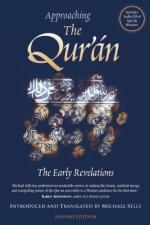|
This section contains 4,197 words (approx. 14 pages at 300 words per page) |

|
The Qurʾān is the primary source of theological and religious knowledge in Islam. Its significance goes beyond the concept of a mere written document, for it is seen by Muslims as a paradigm for God's communication with human beings and as a token of divine presence in the world. Reflecting its paradigmatic nature, the Qurʾān calls itself Umm al-Kitab (literally "Mother of the Book" or "Sourcebook," sūrah 13:39). It is made up of "signs" (ayah, pl. ayat) whose semantic messages replicate all of the "languages" that are to be found in the world of human experience. As a form of divine expression, the Qurʾān acts as a spiritual touchstone and code of conduct, detailing the main themes of the message of Islam as revealed to the Prophet Muḥammad. As a theological statement...
|
This section contains 4,197 words (approx. 14 pages at 300 words per page) |

|



